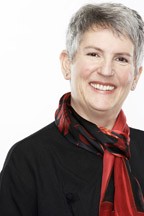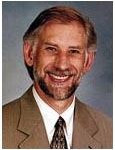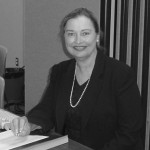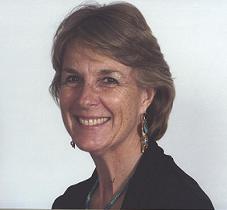
Christopher Szecsey (pronounced “say-chay”) has over 38 years of worldwide experience across more than 48 countries in capacity-building of individuals, teams, community groups, organizations, & projects. For the past 15 years, he has worked as consultant, trainer, & facilitator with international nonprofits & local nonprofits (NGOs) as well as with government & multilateral agencies in the USA & around the world. His international clients include: the Center for Disease Control in Ethiopia, Carter Center, World Wildlife Fund, American Red Cross, Save the Children, CARE, PACT, PATH, Family Health International, Pathfinder, Counterpart International, The Asia Foundation, FAO/UN, UNDP, & UNICEF as well as international consulting firms, foundations, & government agencies. Prior to consulting, he served nine years as a Country Representative/Field Office Director for Save the Children/US on three international assignments in Asia & the Pacific Islands; two years as a Project Director for UNDP in Nepal; & three years as a Peace Corps Volunteer in Ecuador. His USA clients, mostly in the Northern California, include: the Volunteer Center & its Nonprofit Resource Center, Community Action Partnerships, West County Community Services, Santa Rosa Symphony, Habitat for Humanity, RECOURSE, Restorative Resources, Sonoma County Repertory Theater, Next Generation, Lifeschool, Osmosis, Southwest Community Health Center, La Luz, foundations such as Levi Strauss & West County Healthcare, school districts, & local city & county government agencies. Key areas of Christopher’s consulting experience include building the capacity of the nonprofit sector around the world including in the USA; providing technical assistance, training & facilitation in collaboration/partnerships; organizational assessment & development, leadership & team strengthening; program assessment, design, planning, & management; & board & staff development as well as work with local government agencies. Christopher has significant experience & skills in training & facilitation with boards, senior staff, & diverse stakeholder groups, using learner center participatory, interactive, & collaborative learning processes to ensure client & stakeholder involvement, engagement & ownership for positive change efforts. He has served on the board of three nonprofits as well as the chair of one, and as a nonprofit executive director. He graduated from the University of the Pacific/Callison College, and successfully completed the Executive Certificate Program in Global Change & Social Innovation/Appreciative Inquiry, Global Excellence in Management (GEM) Initiative, Case Western Reserve University. His three languages are: English, Spanish, and Indonesian. |
Specialties:
|
Tag Archives: ldi
Bullying in the Workplace
 Bullies aren’t just found on the playground. As a society, we would like to think that when bullies grow up they have learned right from wrong, changed their behavior, and treat others with dignity and respect. Many do; however, some bullies never revert from their mean, aggressive behavior. As our society evolves, with its reliance on technology, many bullies are finding different means and different environments to continue their tyrant-like behavior.
Bullies aren’t just found on the playground. As a society, we would like to think that when bullies grow up they have learned right from wrong, changed their behavior, and treat others with dignity and respect. Many do; however, some bullies never revert from their mean, aggressive behavior. As our society evolves, with its reliance on technology, many bullies are finding different means and different environments to continue their tyrant-like behavior.
Company of Experts was recently the target of a bully. The Company had an agreement with an independent contractor whose job would require minimal supervision/input from a few individuals via a weekly teleconference. Over the course of time, numerous issues began to surface. First, work submitted by this contractor was not completed, and in some cases, was never attempted. The blame was pushed upon the individuals this person worked with for reasons such as: “it was too much work,” “it wasn’t worth my time,” “no one asked me my opinion,” etc. Needless to say, not a lot of work was accomplished by this contractor. Individuals within the Company picked up the slack and worked long hours in order to meet project deadlines.
Second, the cost to finish this contractor’s projects continually increased. Not only was the Company paying the contractor’s salary, they were also paying the salary of the individuals that were taking on the contractor’s responsibilities. The contractor was originally hired because this individual possessed technical skill sets needed for specific projects. However, because the contractor was not doing their job, the Company was compelled to hire additional staff, who also possessed these skill sets, to complete projects that were neglected by the contractor.
Third, employees who worked with this contractor, and met via weekly teleconferences, were suffering from anxiety attacks prior to each meeting. When questioned as to what provoked these attacks, many answered that after each meeting they were assigned an extensive list of items/jobs by the contractor to complete before their next weekly meeting. They added that their “to do list” consisted of tasks that were part of the contractor’s responsibility; however, if they did not take it upon themselves to pick up the slack, the jobs would never get done. In addition, employees noted that if items on their list were not completed by the following teleconference meeting, the contractor would complain that the employees were not doing their job. As a result the contractor would say something to the effect of, “Well I can’t do my job if you don’t do yours.” Many employees would ignore other items/projects they were working on in order to complete the tasks that the contractor wanted done. The tension in the office was thick with worry that they would not finish their “to do list”.
Company of Experts determined it was in the best interest of the Company and its employees if they released the contractor. During this transition, the contractor was harassing employees via phone and email, inquiring the reasons for the contract termination. The Company notified the contractor to not contact their employees in any way, email or phone. The contractor retaliated and continued to harass employees and threatened harm to the Company and to the employees personally. When the Company released the contractor from service, they changed the usernames and passwords to the Company’s websites, newsletters, etc in fear that the contractor may try to “destroy” materials. Unfortunately, the Company forgot to remove the contractor from having access to the Company’s corporate blog and calendar. As a result, the contractor changed the username and password to these items, which prohibited Company access to these items, inevitably rendering them useless.
The cost in lost time due to stress, restoring damaged materials, documenting, researching our rights, defending the employees and the Company are great. Additional costs that can be incurred by companies that suffer at the hands of bullies are: increased cost of health insurance for employees, lost days at work, increased legal bills, talent turnover, etc. We think we are being polite by calling these individuals rude or difficult people, but these individuals are “Bullies”. Bullies (like the contractor in our story) create unhappy, unsafe, and unproductive work environments.
You may see several workshops titled “Dealing with Difficult People”. Company of Experts has refrained from developing any workshop with such a title. Is it rude, difficult, bullying, or harassing? Our online workshop “Managing Professional Relationships at Work” is a beginning to understand how others behave at work. The Company of Experts will address bullying at work in this workshop which is to begin in early September. Information regarding registration times, dates, curricula, etc. can be found by clicking here.
The Company wanted to become more aware of how to spot inappropriate, abusive behavior so as to protect itself and its employees. The Company began researching and uncovered several informative websites. One website, workplacebulling.org, had a startling statistic that read:
“A staggering 37% of the U.S. workforce is bullied at work (an estimated 54 million Americans).” This website lists the traits of individuals who are targeted by bullies:
- Individuals targeted by bullies tend to be independent. The increased level of independence drives the bully’s need to control.
- Individuals targeted have more social skills and are more likely to possess a high level of emotional intelligence (i.e. empathy – even for their bullies).
- Targeted individuals also do not respond to aggression with aggression.
What Company of Expert has learned from this experience…
The conflict seems to be with the perception that people grow and develop as they age. We anticipate those who were Bullies in school will transition to adulthood recognizing that civility and courtesy are key factors to development and growth. In reality, they may have actually become more of a Bully, therefore, becoming someone who stalks, harasses, and commit crimes that they can be punished for. Still, other Bullies stay within the law. These type of bullies enjoy the attention they receive from their erratic actions.
The general response from legal consul is mediation. Unless, the person is violating the law, we look at both people as needing to be “fixed”. This puts the Bully and the Target on an equal playing field, which sounds like a good way to handle this. In fact, most employers and employees are not trained to handle this complex issue. Our research has found that some websites and books recommend that you combat the Bullies on their level. Like you do for a wild animal, you get “bigger” than they are; which is an interesting concept. However, the problem with this approach is that this is not team-friendly. Just because an employer removes a bully from the work environment does not mean that the bully won’t resurface in some way. As in our case, the bully retaliated and has continued to make efforts to harm and destroy the Company. Most HR departments and managers work to keep business flowing and maybe not be trained or have time to handle conflicts such as this. This leaves them feeling overworked and inefficient.
Resolving disagreements is difficult today for two reasons:
- We are emotionally stressed because of the weak economy, world ecology and the potential of terrorists’ threats. This keeps people in reactive thinking which tends to close them off to creative resolution or to make them back away from engagement.
- We simply do not have the tools to civilly and cooperatively achieve sustainable resolutions to the problems which arise in organizations.
Will we ever change the inappropriate behavior of bullies? Maybe not. Bullies usually do not listen, are aggressive, and do not understand appropriate social behavior. The decision is up to us. We either accept a bully’s inappropriate behavior or become proactive in taking the necessary steps to discontinue a business relationship. Extreme cases may require having to refer the matter to legal counsel.
Working for a living is a basic for most of us. We can learn job skills and earn degrees to get the job that we want. Keeping that job and finding happiness there requires that we each have the interpersonal (or intra personal?) behaviors that are complimentary to how we want to be treated, to our team, and to the Company we work for. This fits into the lifelong learning category. We can do this learning in many ways such as reading, mentoring, coaching, modeling (how we teach others and how they teach us – our actions and interactions!) and workshops. Company of Experts has developed terrific programs that can help you develop your leadership style. In this new society, we each are leaders of our future – the path we choose is up to us. For workshops and programs that we offer – Leadership Development Institute (LDI) and the Center for Appreciative Inquiry. The Department Chair Institute is specifically tailored for our educational partners.
Jeanie Cockell

Dr. Jeanie Cockell, is president of a consulting company based in Halifax, Nova Scotia. Jeanie is a dynamic facilitator who is known for her creativity, sense of humour, sensitivity, and ability to get diverse groups to work collaboratively together. She is a leader in Appreciative Inquiry as an organizational and community development process, a research methodology and foundation for fostering collaboration in groups. Jeanie has been certified by Company of Experts.net as both an Appreciative Inquiry Facilitator and an appreciative Inquiry Facilitator Training (AIFT) Trainer. Since 1999 Jeanie has worked as an educational and organizational consultant with organizations in the private, public and social-profit sectors. She has extensive experience in facilitating, presenting, training, coaching, conflict resolution, leading and collaboratively designing strategies for individuals, groups, organizations and communities to build positive futures and to respond effectively to change. Her background includes teaching, presenting and delivering workshops in a variety of areas: appreciative inquiry; team building; leadership; diversity; mathematics; adult learning; instructional skills, planning and design; instructor and program evaluation; and facilitator training. As well Jeanie has had formal leadership roles at Vancouver Community College as Mathematics Department Head, Associate Dean; at the Institute of Indigenous Government where she consulted as Dean in the senior executive team; and at the British Columbia Ministry of Advanced Education as Project Officer leading a large provincial project. Her consulting work is based on the expertise that she developed and continues to enhance as an educator and leader, as well as the theoretical/research background she developed in doing her Masters research on “Power and Leadership: A Perspective from College Women” (1993) and her Doctoral research on “Making Magic: Facilitating Collaborative Processes (2005). Jeanie has a BA in Mathematics, an MA in Higher Education and an EdD in Educational Leadership and Policy all from the University of British Columbia. She is also an Instructional Skills Facilitator Trainer, Gender and Diversity Facilitator Trainer, Sociocultural Competency Trainer, and Appreciative Inquiry Facilitator Trainer. Publishing includes:
|
Specialties:
|
Ray Wells

Ray Wells, based in the Philadelphia region, is the president of a consulting firm that uses a strengths-based approach in designing leadership, team and organization development programs for its clients. This approach, which focuses on accentuating and building on “who we are when we are at our best,” has helped the firm capture the energy and professional passion of the people it serves. Ray has been certified by Company of Experts.net as an Appreciative Inquiry Facilitator and Appreciative Inquiry Facilitator Trainer (AIFT ©). Since 1987, the firm has customized programs and projects for nearly 100 non-profit, business, and education clients in organizations ranging from just a dozen people to the Fortune 500, from the smallest private schools to the Ivy League, from single-office non-profit agencies to the largest corporate health systems. When necessary, the firm draws on the talent of a host of trainers, facilitators and consultants with whom it regularly partners. Ray’s own strengths and professional passion are focused on guiding higher education institutions and their leaders in transforming the post-secondary educational landscape. He has assisted with major change initiatives at Penn State University, Lehigh University, the Woodrow Wilson National Fellowship Foundation, the University of Connecticut, and in the growing Drexel University system. He has facilitated whole systems change workshops for the National Association of Presidential Assistants in Higher Education, the American Council on Education, and A Community of Agile Partners in Education (CAPE), a not-for-profit Pennsylvania-based consortium of higher education and K-12 members, where he has served as a consultant since January of 2001. In 2001 Ray joined the faculty of the Foundation for the Advancement of International Medical Education and Research (FAIMER) as a leadership scholar/instructor. The annual FAIMER Institute serves medical school faculty from developing countries in South America, Africa and Asia who have the potential to play a key role in improving medical education in their schools. Over a four-year span at Princeton University, Ray worked with an on-going culture change program targeted towards Princeton’s top 450 administrators and managers. Among many other projects, he assisted with the design of several management development conferences and post-conference training programs on the challenges of change, process improvement, the introduction of a performance enhancement initiative, and the impact of new technology on organizational processes. Ray earned his Master of Arts from Bowling Green State University (OH) in college student development and his Ph.D. in applied social-psychology from Temple University, where his research focused on how leadership creates and maintains a sense of community on a college campus. He has held professional student affairs positions at Arizona State University, Southeast Missouri State University, and Temple University. |
Specialties:
|
Carolyn Weisenberger

Carolyn Rainey Weisenberger, BS, LPN, is an educational consultant. Carolyn brings 28 years of facilitating wellness and growth for others; 22 of those years have been in the field of experiential learning. She has worked with hundreds of corporations, community organizations and schools to develop individual and organizational excellence. Carolyn uses the integration of Appreciative Inquiry, other strength-based tools, and experiential education as a dynamic method for helping clients move forward with motivation toward their vision and goals. She co-designed and patented an award winning, innovative, high performance portable low ropes course. Carolyn has co-authored From Conflict to Collaboration and the Facilitator Manual for the Low Ropes Course. Carolyn is an Associate Member of AI Consulting, LLC, and a member of the American Society of Training and Development (ASTD), the Positive Change Corps (PCC), and the Association for Experiential Education (AEE). Carolyn is a certified Appreciative Inquiry Facilitator Trainer |
Specialties:
|
Cheri Torres
Roseanna G. Ross

Roseanna G. Ross, is Professor and Chair of the Department of Communication Studies at a state university in Minnesota. She was Internship Director for the department for 18 years, and was Director of the Faculty Center for Teaching Excellence for 5 years. In addition, Roseanna currently serves as a campus mediator in the university mediation program. Roseanna’s professional publications include the development of a self-report instrument to assess communicative messages in conflict (Ross-DeWine CMMS). She is also co-author of two books: “The Internship As Partnership: a Handbook for Businesses, Nonprofits and Government Agencies,” and “The Internship as Partnership: A Handbook for Campus-Based Coordinators and Advisors.” As Senior Associate in the “Developing the Leadership of America’s Next Generation of Nonprofit Leaders” joint project of the National Society for Experiential Education, Regis University and the Center for Creative Leadership, Ross developed and facilitated a series of institutes for interns and mentors. Roseanna Ross is an energetic, creative presenter, trainer and storyteller, and experienced process consultant. As an independent communication consultant and trainer, Roseanna has over 30 years of experience in designing and facilitating seminars, assessing organizational communication needs, and providing keynote presentations for both the public and private sectors. Dr. Ross was a recipient of the National Society for Experiential Learning 2006 Pioneer in Experiential Learning Award and the 1999 Young Leader in Experiential Learning Award. Roseanna received the 1998 MnSCU Center for Teaching and Learning Star Leader Award. Ross has received teaching awards including the Central States Speech Association Outstanding Young Teacher Award and the Ohio University Department of Education Distinguished Alumni Award. She was also listed in Outstanding Young Women of America in 1985, and was honored as an International Women of the Year 1992-1993. Dr. Ross taught for a year in Japan 1991-1992. She was Director of the University’s Center for British Studies, Alnwick England, 1993-1994 and was Academic Director for that program in Summer 2006, and Summer 1996. Roseanna Ross earned a BS in education at Ohio University, and a Master of Arts in communication from Ohio State University and is a Doctor of Philosophy in communication theory, speech communication and higher education from Ohio University. |
Specialties:
|
Nicholas Holton
Contact Information:Address: Email: Phone: Skype: NicholasHolton Website(s): Social Media Networks: Working Portfolio: |

Nicholas Holton has worked as a professional educator his whole career. First as a math instructor and now at a community college as an Associate Dean for General Education, Nicholas has been a leader in innovation by design. His workshops have visited four continents, and include strategic planning, appreciative inquiry, service learning, and engaged learning techniques. He is sought out as an invited speaker and his keynote and other presentations draw an international audience. Nicholas’ appreciative inquiry teams work with small nonprofits and whole community colleges. He conducted an Appreciative Inquiry Facilitator Workshop (AIFT) in Perth, Australia and his clients are located all over the world including: Scotland, Chile and India. His professional passions include anything that helps people improve the human condition. He is committed to this also in he personal life as he sits on several nonprofit boards and volunteers regularly at community events.
|
|
|
Presentations:
Appreciative Inquiry Summits:
Workshops:
Keynote:
Webinars:
International:
|
|
|
|
Linda Watkins

Linda Watkins has been associated with community colleges for 20 years. She currently serves as President of San Jacinto College South in Houston, Texas. Before becoming President, Linda taught on all levels from middle school through graduate school. She has served in various administrative roles, including department chair, dean, Vice President of Instruction, and Vice President of Student Services. Linda has been certified by Company of Experts.net as an Appreciate Inquiry Facilitator. She works with many local organizations in the areas of planning and organizational change. Linda holds a doctoral degree in Secondary and Higher Education, a masters degree in sociology, and a bachelor of arts in language studies. She works with groups to bring about change through systematic planning and by building upon the strengths of individuals and institutions. |
Specialties:
|
Jim Pulliam
Contact Information:Address: Email: Phone: Skype: jim_pulliam Website(s): Working Portfolio: |

My “walk” is no different from others nor the opportunities or achievements any greater. Spending time in the financial markets, teaching from the primary grades to graduate school, serving as a founding College President, Vice President of the Company of Experts and CEO of a software Company are professional experiences. Volunteer organizations range from holding professional statewide office, foundation boards, regional economic development board and serving as an appointee of a Governor on a BRAC Commission.
What have I learned? I have learned that our similarities are greater than our differences. Differences of people can be measured in millimeters not miles. It all depends on ones perspective.
I have also learned that destiny is up to us. One once said, “ it isn’t a journey but a quest”. A journey happens, a quest is something we thirst for.
What have I observed? I have observed that those making the greatest contribution for others are living lives of significance not necessarily one for their personal success.
What do I believe? I believe it is up to you, and you and me.
|
|
Macon Miracle:
World Appreciative Inquiry Conference (WAIC) 2012:
|
Handouts:Insert Handouts here… Presentations: |
|
|
| “Just a note to say how much I appreciate what you’re doing in the world and to let you know that AI continues to inform many aspects of all that I do.” ~ Susan Sanford, Certified AI Facilitator |



